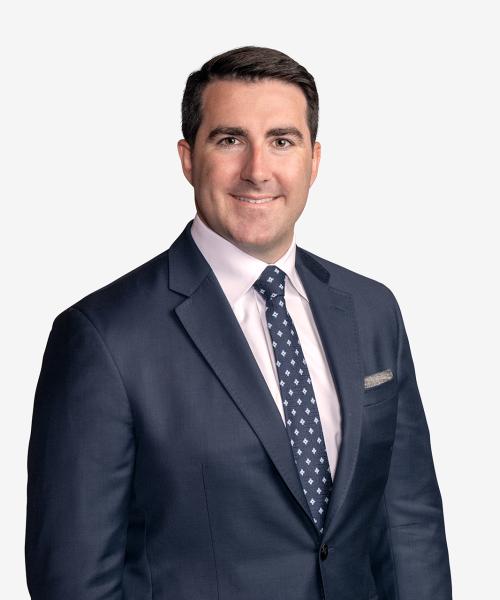Pharmaceutical Company Agrees to Pay More than $108 Million to Resolve False Claims Act Allegations
Pharmaceutical Company Agrees to Pay More than $108 Million to Resolve False Claims Act Allegations
A California-based pharmaceutical manufacturer, Avanir Pharmaceuticals, agreed to pay a total of $108 million to resolve civil, criminal, and administrative claims. In a civil resolution, Avanir agreed to pay $95,972,017 to settle allegations brought under the whistleblower provisions of the False Claims Act related to Avanir’s marketing of Nuedexta, a drug used to treat pseudobulbar effect. The Northern District of Georgia also entered a deferred prosecution agreement, which requires Avanir to pay a monetary penalty of $7,800,000 and a forfeiture of $5,074,895, and the government will defer prosecution for three years to allow Avanir to comply with the Agreement.
In the one-count Information filed in the United States District Court for the Northern District of Georgia, Avanir was alleged to have violated the Anti-Kickback Statute, from October 29, 2010 through December 31, 2016, by providing money, honoraria, travel, and food to certain physicians and health care professionals to induce them to write prescriptions for Nuedexta. The government alleged that Avanir paid a doctor to induce him into becoming a high prescriber of Nuedexta to beneficiaries of federal healthcare programs and to induce him to encourage other doctors to do the same. Under the Agreement, Avanir admits that it paid the doctor both to maintain and increase his prescription volume.
The Northern District of Ohio also announced the indictments of four individuals (two doctors and two Avanir sales representatives) for conspiracy to solicit, receive, offer and pay health care kickbacks related to Avanir. Avanir has agreed to cooperate in the prosecution of these individuals.
Avanir also entered into a Corporate Integrity Agreement with the Department of Health and Human Services Office of Inspector General, which requires Avanir to implement additional controls related to its interactions with physicians and to conduct internal/external monitoring of promotional activities.
Read the DOJ press release here.
Former New York Congressman Pleads Guilty to Insider Trading and Lying to the FBI
On September 30, 2019, Christopher Collins, the former representative for the 27th District of New York in the US House of Representatives, pled guilty to one count of conspiracy to commit securities fraud and one count of making false statements to law enforcement officials before US District Judge Vernon S. Broderick.
The government alleged that Collins abused his position on the Board of Directors for Innate Immunotherapeutics Ltd. in June 2017 by providing his son and his fiancée’s father (his co-defendants), and other unindicted individuals, information related to the results of a drug trial before such results were publicly released. Based on this information, the government alleged Collins’ co-defendants and the other unindicted individuals traded Innate stock to avoid over $768,000 in losses.
The government further alleged that Collins made false statements to the FBI to cover up his participation in the alleged insider trading scheme during interviews with agents in April 2018. Collins’ sentencing is scheduled for January 17, 2020. Collins submitted a letter of resignation in Washington on September 30, 2019 and the resignation became official the following day, October 1, 2019, when Collins pled guilty.
Read the DOJ press release here.
Former Platinum Executive Acquitted of Securities Fraud, Co-Founder Receives New Trial
On September 27, 2019, US District Judge Brian Cogan from the Eastern District of New York granted the motion for acquittal brought by a former executive at Platinum Partners, a now-defunct hedge fund. The former Platinum executive, who served as the co-chief investment officer, was found guilty, along with the Platinum’s co-founder, on two counts of conspiracy and one count of securities fraud.
A jury found that the Platinum executive and co-founder defrauded bondholders of Black Elk Offshore Operations LLC, an oil exploration company owned by Platinum, by rigging a consent solicitation vote to change a bonds’ indenture in order to divert proceeds from a Black Elk asset sale to other Platinum-owned entities ahead of other bondholders. According to the consent solicitation, affiliates of Black Elk could not vote to change the bonds’ indenture and Platinum funds that held Black Elk bonds could not be counted in the vote. The government alleged that the former executive and co-founder circumvented this by funneling bonds from Platinum to Beechwood, an alleged Platinum affiliate.
Judge Cogan granted the motion for acquittal, indicating that prosecutors failed to prove beyond a reasonable doubt that the former Platinum executive had criminal intent. In particular, Judge Cogan noted that prosecutors cited no evidence that the former Platinum executive believed that Beechwood was a Platinum affiliate or that he played a role in shifting Black Elk bonds to the reinsurer.
With respect to Platinum’s co-founder, Judge Cogan found that there was some evidence that he played a role at Beechwood and believed Beechwood to be under Platinum’s control, but insufficient evidence to establish that he knew or should have known that Beechwood was a Platinum affiliate by virtue of his role in both companies. Accordingly, Judge Cogan granted Platinum’s co-founder a new trial, because “the government adduced sufficient evidence for a judgment of acquittal to be unwarranted,” but affirming the verdict “would be a manifest injustice.”
Federal Judge Dismisses False Claims Act Suit Against Walgreens
On September 30, 2019, US District Judge Robert Blakey of the Northern District of Illinois dismissed a Complaint in Intervention brought by the government against Walgreens, a pharmacy manager, and supervisor, following a whistleblower suit brought by former employees. The government alleged that Walgreens engaged in a scheme to bill Illinois for auto-refilled prescriptions that were unclaimed by patients, a violation of the Illinois Medicaid program, which prohibited pharmacies from automatically refilling prescriptions without request. The government alleged that Walgreens sought funds from the state for refilled prescriptions, but failed to specify that Walgreens did not receive authorization for the prescriptions.
Judge Blakey also found that the government’s reliance on a single, unnamed Medicaid patient and a claim form submitted by the pharmacy to the Illinois Medicaid was not sufficient to survive dismissal. Judge Blakey indicated that the government’s complaint lacked detail and context to suggest a broader auto-refill scheme based on the single re-fill claim. As such, Judge Blakey dismissed the complaint without prejudice.
Read the order for dismissal.
Contacts
- Related Industries
- Related Practices








